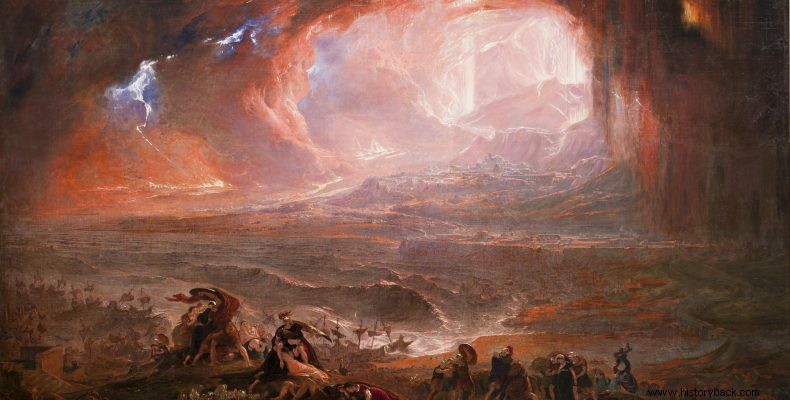
The brain of a 25-year-old man who died in the city of Herculaneum, Italy, near Pompeii, during the terrible eruption of Vesuvius in AD 79, was turned into glass. Italian researchers have found for the first time fragments of a glassy black material inside the victim's cranial cavity and speculate that the very high heat due to the volcanic eruption led to the conversion of the brain tissue into glass.
Vesuvius spewed out a terrifying pyroclastic wave of hot gases and rock, capable of boiling human blood, gassing flesh and, it seems, even turning the brain into glass. The researchers, led by professor of forensic anthropology Pier Paolo Petrone of the Federico II University of Naples, made the relevant publication in the American medical journal "New England Journal of Medicine", according to the British "Guardian".
The burnt skeleton of the victim with the vitrified brain had been found in the 1960s on a bed in a building (Collegium Augustalium), buried under a volume of volcanic ash, probably while he was sleeping. Now, for the first time, scientists have identified and analyzed a shiny vitreous material inside his fractured skull and found proteins, fatty acids and triglycerides suggestive of brain tissue.
Analysis of the burnt wood of the victim's bed shows that the temperature must have reached 520 degrees Celsius. At such temperatures soft tissues, such as the brain, usually decompose or sometimes their remains are saponified. "Until now, vitrified brain remains have never been found," said Dr. Petrone. As he said, in such a powerful volcanic eruption, the only way to escape is to get away early, as the inside of the houses do not provide protection due to the sudden rise in temperature even tens of kilometers away from the epicenter of the eruption.
SOURCE:APE-ME
